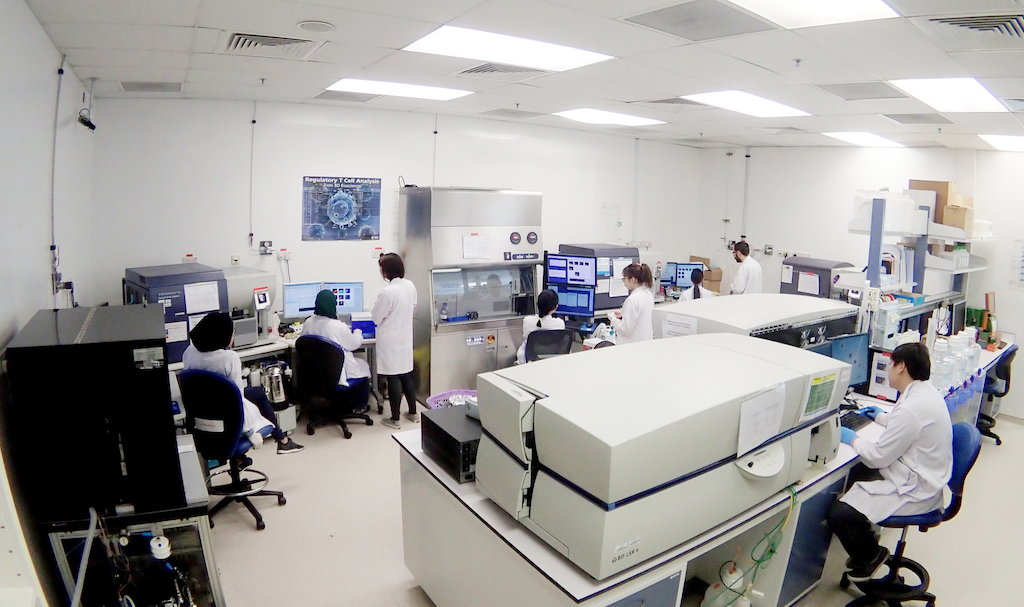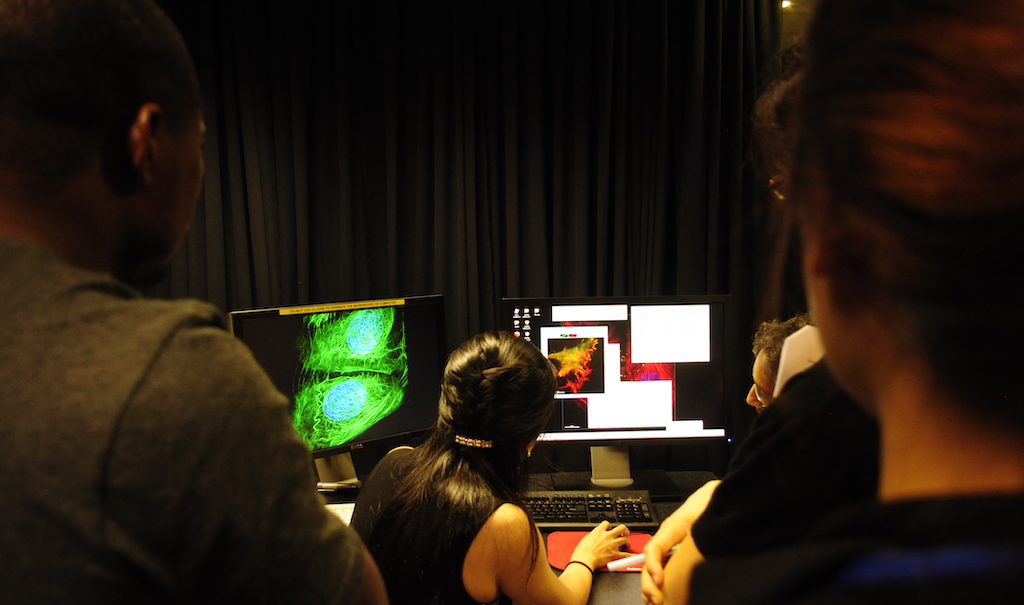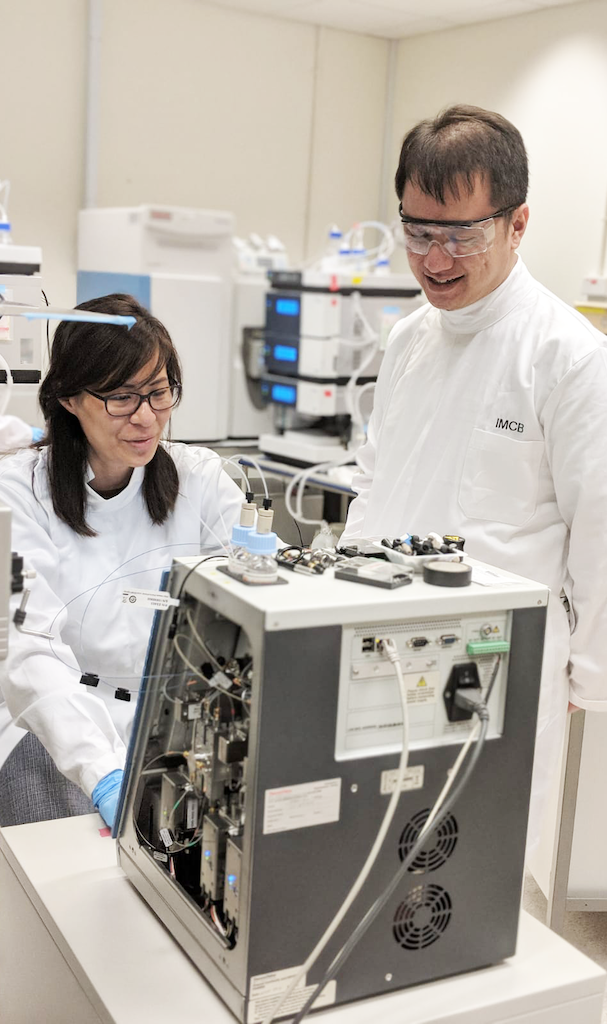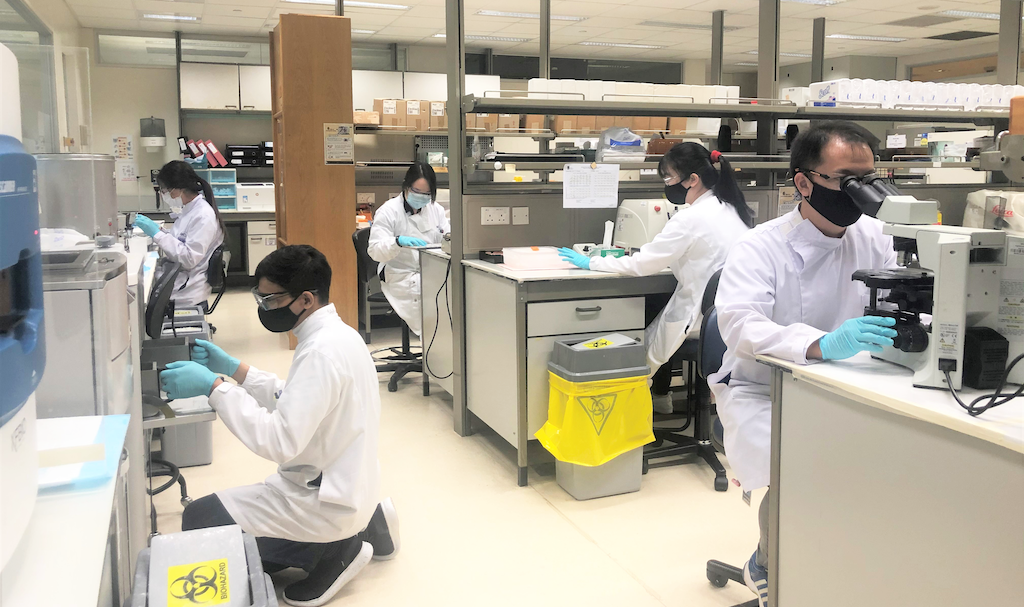[ad_1]
AsianScientist (Mar. 29, 2021) – From developing homegrown COVID-19 diagnostic kits like Fortitude to identifying novel SARS-CoV-2 mutations, Singapore’s steady investments into its biomedical sector clearly paid off during the pandemic. By the time COVID-19 hit the Republic’s shores, local and international players in the country’s buzzing biomedical scene were ready to rise to the occasion—enabling Singapore’s robust pandemic response.
At the heart of Singapore’s biomedical research ecosystem is the Agency for Science, Technology and Research’s (A*STAR) Research Support Centre (RSC). By offering everything from on-demand access to sophisticated equipment and scientific services to a talent exchange platform connecting employers with prospective employees, RSC plays a crucial role in powering biomedical innovation in the Republic.
With co-funding from the National Research Foundation, RSC also supports four National Shared Platforms, namely the Immunomonitoring (IM) Platform, SingaScope, Singapore National Laboratory for Mass Spectrometry (SingMass) and Translational Pathology Consortium (TPC).
True to their name, these platforms are available to researchers nationwide—in hope of collectively advancing Singapore’s scientific contributions for the benefit of mankind. Here’s a look at the National Shared Platforms and the expertise they offer.
Boosting immunology research

Over at A*STAR’s Singapore Immunology Network (SIgN), the Immunomonitoring (IM) Platform provides a full spectrum of research services. The IM platform not only has the largest flow cytometry platform in Southeast Asia, but it also consists of other services including multiplex analysis of proteins (MAP), immunogenomics, mass cytometry and computational immunology.
By combining genomic, proteomic and cell-based assays, the IM platform generates a complete picture of the immune system and response within the context of health and disease. Accordingly, the IM platform allows immunologists to integrate complex data from multiple approaches and extensively analyze both steady-state and progression of disease or treatment.
To date, the IM platform has enabled over 130 research partnerships, resulting in more than 1,500 peer-reviewed publications, including many critical COVID-19 studies. Both flow and mass cytometry were involved in the characterization of leukocytes from severe COVID-19 patients.
The IM platform was also deployed to examine plasma samples of patients infected with the Δ382 variant of SARS-CoV-2. Through MAP, these patients were found to have a more effective T-cell response and platelet regulation during the early stages of infection.
As more COVID-19 variants emerge, the IM platform could help advance detection as well as the development and/or response to treatments and vaccines. With its state-of-the-art technologies, the IM platform not only furthers research collaborations, but also creates better healthcare and economic outcomes.
Pushing the boundaries of microscopy

Now an indispensable research tool in laboratories worldwide, microscopes have revolutionized the sciences by rendering visible what was once hidden in plain sight. The SingaScope microscopy infrastructure network brings the benefits of microscopy to researchers across the country—combining the A*STAR Microscopy Platform with resources like SingHealth’s Advanced Bioimaging as well as the Centre for Bioimaging Sciences and Singapore Microscopy and Bioimage Analysis at the National University of Singapore (NUS).
The network also includes the Nanyang Technological University, Singapore (NTU) Optical Bio-imaging Centre consisting of the Singapore Centre for Environmental Life Sciences Engineering (SCELSE) and the Lee Kong Chian School of Medicine.
With 69 high-end microscopes housed across four research organizations, SingaScope offers instrumentation and expertise to support and enable live-cell imaging, 3D imaging, molecular imaging, ultrastructural microscopy, superresolution microscopy and more.
To further streamline the process and promote collaboration, SingaScope is developing an online database to enable scientists to find the microscopes they need with a single click. Through the database, researchers can reach out to relevant experts for consultation on all stages of their imaging experimental pipeline. This database will be available at the SingaScope website in late April 2021.
“To see a researcher from any other institution coming to use the instruments within A*STAR is a real pleasure,” commented Dr. Graham Wright, RSC Acting Director and founding member of SingaScope. “Particularly if they couldn’t have done their experiment otherwise.”
Amassing biomedical expertise

Similar to SingaScope, the Singapore National Laboratory for Mass Spectrometry (SingMass) consolidates world-class research centers to offer mass spectrometry applications to scientists within Singapore’s shores and beyond. Each of the three centers under SingMass—namely the Protein and Proteomics Centre (PPC), Singapore Lipidomics Incubator (SLING) and Functional Proteomics Laboratory (FPL)—cover a complementary area of expertise.
At NUS, PPC enables protein identification and the study of post-translational modifications, while SLING equips researchers to better understand the complex biochemistry of lipids. Meanwhile, A*STAR’s FPL integrates multi-omic approaches to analyze signaling networks and the interactions between nucleic acids and proteins, among many others.
“Omics studies provide a wealth of information unrivalled by any other methods, enabling scientists to gain deep insight into the biological machinations of life,” explained Dr. Radoslaw Sobota from FPL. “However, access to omics technologies is limited due to the high entry cost and lack of skilled personnel capable of understanding the research objectives and tailoring specific methods to suit the needs of the scientific questions.”
Through SingMass, Sobota and his colleagues aim to eliminate the barrier of entry for their counterparts in Singapore and beyond by providing access to cutting-edge technologies, qualified personnel and proteomics expertise in one national platform.
A deeper dive into disease

Often described as the bridge between science and medicine, pathology—the study of the nature of disease and injury—underpins nearly every aspect of clinical care. By examining tissues and body parts, pathologists can impart valuable insights for disease diagnosis.
The Translational Pathology Consortium (TPC) provides four key capabilities. Within TPC, the Good Laboratory Practice (GLP)-certified Advanced Molecular Pathology Lab (AMPL) at the Institute of Molecular and Cell Biology, A*STAR receives over 4,000 requests every year and offers experimental pathology services to academia, pharma and biotech companies.
As the only GLP-certified in vitro toxicology facility in Southeast Asia, TPC enables researchers to investigate the effects of toxic conditions on cells, tissues and organs. Together with Hamburg-based oncology company Indivumed, the consortium is also establishing an Asian-centric Cancer Database to accelerate precision diagnostics and treatment for cancer patients in the region.
Through the BioPharma Innovation and Solutions (BPIS) division, TPC works closely with researchers to provide solutions and support in molecular pharmacology and bioanalysis. With its veterinary pathology arm, the consortium also provides diagnostic services to animal hospitals and veterinary clinics in Singapore.
Finally, TPC closely collaborates with spin-off companies like MiRXES to discover novel biomarkers and industry partners like Invitrocue to develop consultative telepathology services.
All in all, TPC provides scientists with high-quality histopathology support for both human and veterinary samples, right in Singapore. In doing so, the platform overcomes the many legal and administrative challenges of sending specimens across national borders, reducing turnaround times and cost without compromising quality.
With support from RSC and the four National Shared Platforms, it’s never been easier to kickstart scientific research in Singapore. Visit the RSC website for your research needs now!
Asian Scientist Magazine is a media partner of the A*STAR Research Support Centre.
———
Copyright: Asian Scientist Magazine; Photo: Immunomonitoring Platform.
Disclaimer: This article does not necessarily reflect the views of AsianScientist or its staff.
[ad_2]
Source link